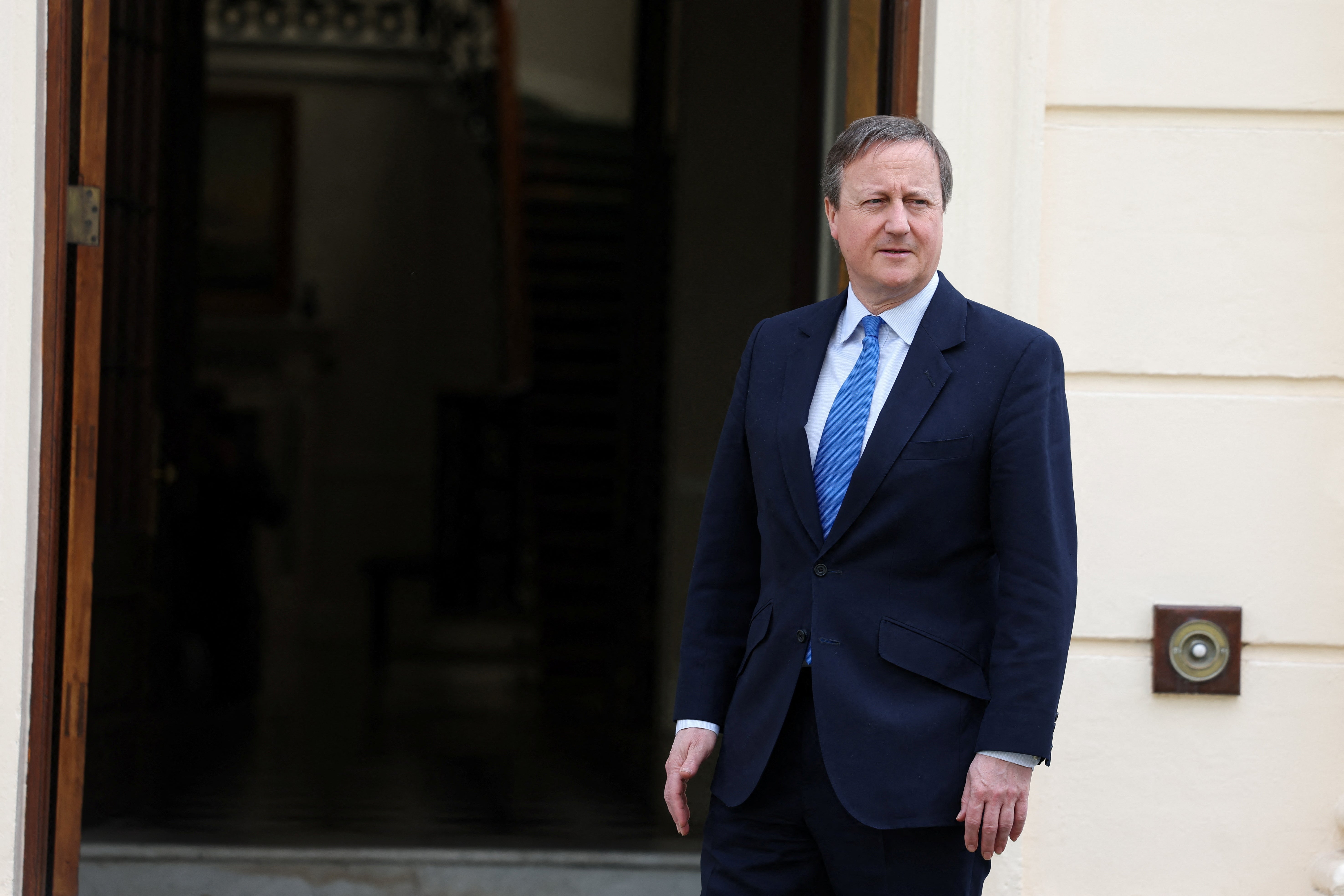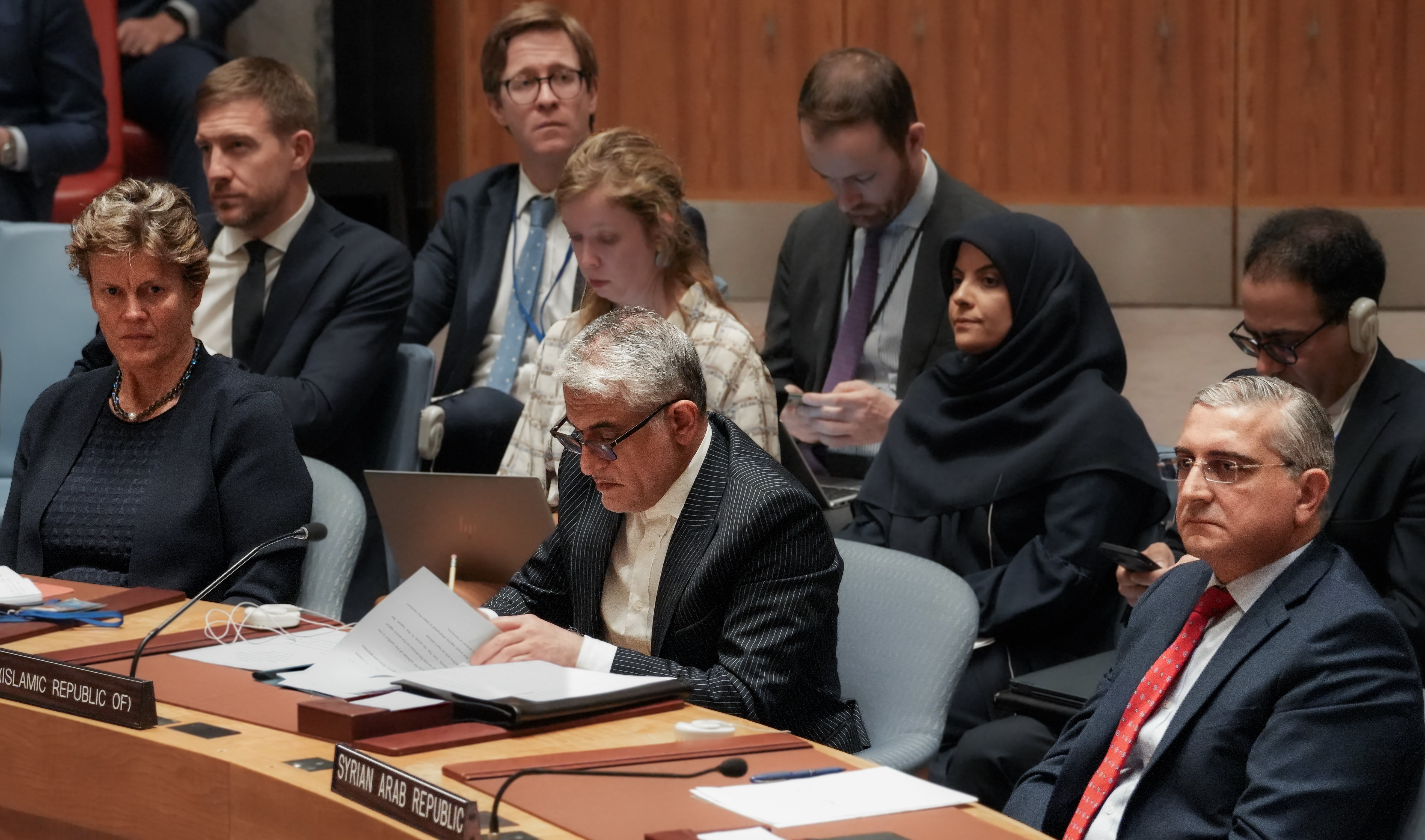Rishi Sunak faces growing calls to proscribe Iran’s Revolutionary Guards as terrorist organisation
Labour have joined calls for the government to designate Iran’s Revolutionary Guards as a terorrist organisation
Your support helps us to tell the story
From reproductive rights to climate change to Big Tech, The Independent is on the ground when the story is developing. Whether it's investigating the financials of Elon Musk's pro-Trump PAC or producing our latest documentary, 'The A Word', which shines a light on the American women fighting for reproductive rights, we know how important it is to parse out the facts from the messaging.
At such a critical moment in US history, we need reporters on the ground. Your donation allows us to keep sending journalists to speak to both sides of the story.
The Independent is trusted by Americans across the entire political spectrum. And unlike many other quality news outlets, we choose not to lock Americans out of our reporting and analysis with paywalls. We believe quality journalism should be available to everyone, paid for by those who can afford it.
Your support makes all the difference.The UK government is facing growing calls to proscribe Iran’s Revolutionary Guards as a terrorist organisation following its attack on Israel.
The British Board of Deputies, which represents British Jews, have led the calls for Rishi Sunak to ban the organisation. They have been backed by MPs from across the political divide, while Israel made similar representations to the United Nations security council.
The Islamic Revolutionary Guards Corps is a powerful force within Iran and also controls the “axis of resistance” against Israel across the region.
In a letter to Mr Sunak on Monday, the Board of Deputies President Marie van der Zyl said: “The IRGC’s role in funding, arming and training a host of terror proxies, including Hamas, Hezbollah and the Houthis, is clear”.
Senior Tories also urged Mr Sunak to take action, with former party leader Iain Duncan-Smith describing ministers’ justifications for not designating the organisation as “absurd”.
He told the Guardian: “The government should have already proscribed IRGC. The USA have asked us to do it. The excuses the government uses are [firstly] that if the UK proscribes the IRGC it will lose influence. That’s absurd as we clearly have no influence.”
Bob Blackman, chair of the all-party parliamentary group on Israel told The Independent he wants to see the Islamic Revolutionary Guard Corps proscribed and the Iranian embassy “closed in London, as well as our embassy closed down in Tehran, and all our diplomats brought home.”
Shadow defence secretary John Healey also said the threat to the UK from allowing the IRGC to operate should be sufficient for the government to be “responsible” and ban the organisation.
He added: “It’s the leading edge of the threat that Iran poses not just to Israel, but to Arab countries and western interests right across the region”. Shadow foreign secretary David Lammy said on Sunday that the attack “highlights once again the extreme danger of the IRGC”.
Foreign secretary David Cameron said that proscribing the “dangerous” organisation was something ministers were keeping under review, alongside a number of possible further sanctions against the state
He added: “I keep this under review but the police and security services say they have the powers to deal with it here or elsewhere.”

Downing Street also told journalists that the option of designating the IRGC “remains open to us” but refused to confirm whether the government would take that step.
Meanwhile, Lior Haiat, the spokesperson for the Israeli ministry of foreign affairs, demanded a ban on the IRGC on Sunday as an “initial price” for the “large-scale and unprecedented” aggression.
Calls to take this action against Iran have been meet with caution by the government over concerns about diplomacy. Lord Cameron spoke to the Iranian foreign minister, Hossein Amir-Abdollahian and said that retaining diplomatic relations with Iran “makes Britain stronger and more able if we can have those conversations, and we should keep it that way.”
Designating the IRGC on the same level as Islamic State or al-Qaeda could threaten the UK’s ability to speak to senior members of the Iranian government as the Guards are a powerful part of their regime.

There are also fears that Britain’s embassy in Tehran could become the object of retaliatory moves while the UK tries to broker diplomacy between Tehran and Washington and prevent Iran’s nuclear programme.
Rishi Sunak will give a statement in the House of Commons later today that will set out the action the UK took against Iran and any further sanctions.
Join our commenting forum
Join thought-provoking conversations, follow other Independent readers and see their replies
173Comments